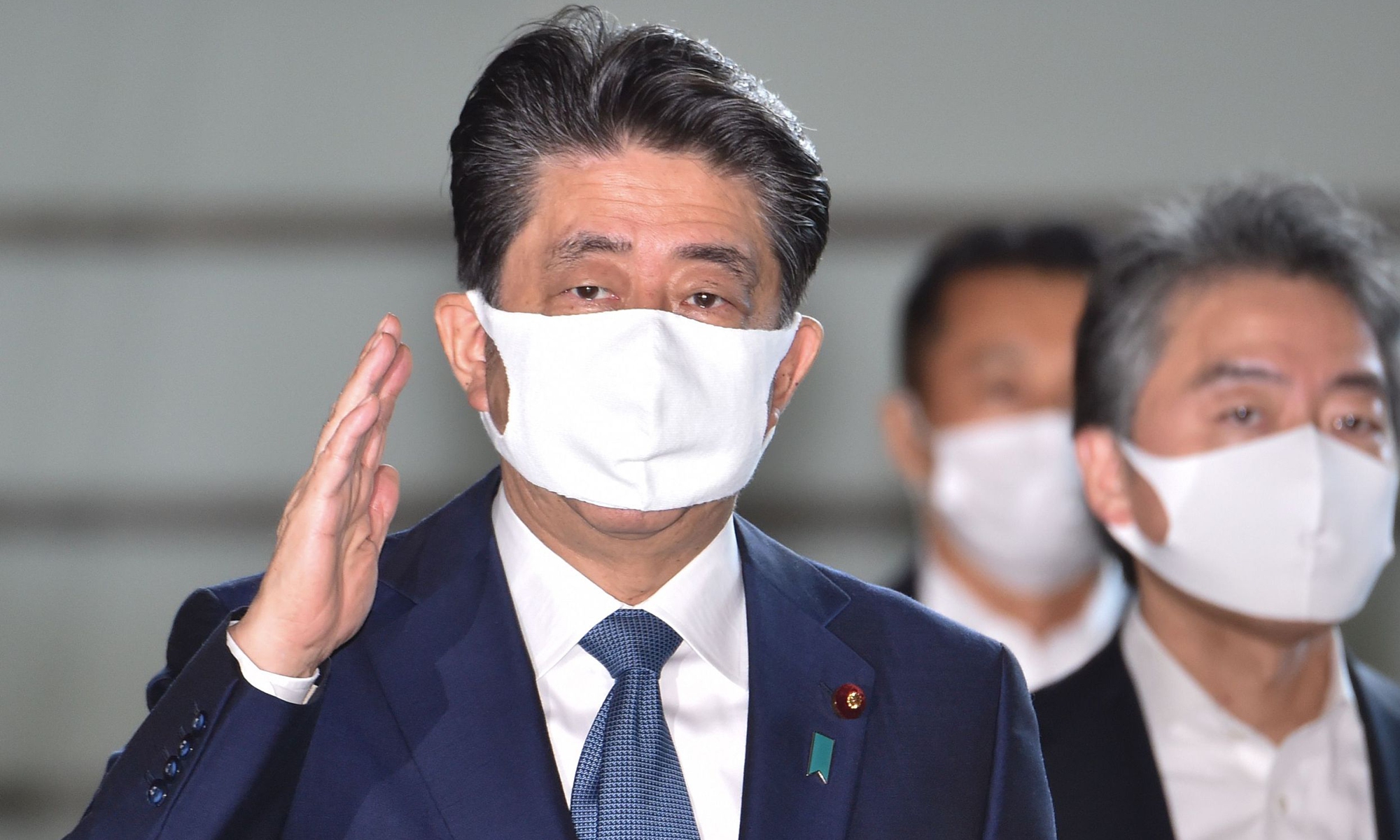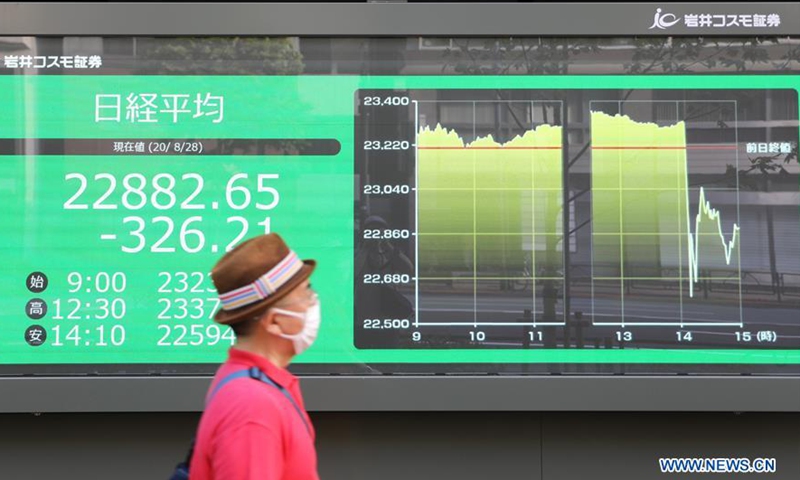Maintaining stable China ties key to Japan's economy
By GT staff reporters Source: Global Times Published: 2020/8/28 21:58:40

Photo: CFP
The sudden announcement of Japanese Prime Minister Shinzo Abe's resignation has sent ripples to the markets, and Chinese analysts said maintaining stable China-Japan relations will be a key job of his successor, as such a relationship will be vital to the Japanese economy, which is severely affected by the pandemic.
Japan's longest-serving leader, whose tenure saw Japan's second-longest economic recovery of the postwar era that spanned nearly six years from December 2012, announced his resignation on Friday and raised doubts over whether his successor will be able to carry out his legacy.
Japan's benchmark Nikkei average closed down by more than 1.4 percent at 22,882.65 points on Friday.
Global investors will be watching this development through policy continuity, especially around Abenomics, according to an FXTM research note, an online foreign exchange trading platform sent to the Global Times on Friday.
Longer-term concerns may also arise over how Japan can navigate ties with major economies such as the US and China in a post-Abe era, the note said.

A pedestrian wearing a face mask walks past an electronic board showing the stock index in Tokyo, Japan, on Aug. 28, 2020. Tokyo stocks closed lower Friday as investor sentiment was dented by reports saying that Japanese Prime Minister Shinzo Abe will step down as the nation's leader due to health issues.Photo:Xinhua
Japan's economy is in dangerous waters due to the impact of COVID-19, and Abe's departure will cast a negative impact on Japan's political and economic life, said Chen Zilei, director of the Research Center for Japanese Economics at the Shanghai University of International Business and Economics.
"Abe's departure happens at a critical time when Japan is in dire need of a relief plan to shore up its economy," said Chen, who predicts Abe's immediate successor will stick to the course set by Abe.
Since 2012, Abe deployed his "three arrows" of Abenomics - hyper monetary easing, fiscal spending and structural reforms - to revitalize the world's third biggest economy marred by decades of stagflation.
However, one of Abe's major achievements was a relatively stable relationship between China and Japan, analysts said, as Abenomics would not have been able to succeed if not for such stable ties, which provided Japan access to the world's largest consumer market.
If Japan had chosen to disengage with China, Japan's second-longest recovery would not have been achieved, observers noted.
Data from China's Ministry of Commerce showed that trade between China and Japan reached $327.66 billion in 2018, up from $312.55 billion in 2013.
A significant job by Abe's successor would also be how to revitalize China-Japan economic and trade ties, which are restricted by the pandemic, Chen said.
No matter who becomes new Japanese prime minister, the country's economy is headed for a recession, Zhang Jifeng, vice director of the Institute of Japanese Studies at the Chinese Academy of Social Sciences, told the Global Times.
Japanese economic growth started to slow in late 2018 and has contracted since the fourth quarter of 2019. Impacted by the global pandemic, Japan's GDP contracted by an annualized 27.8 percent in the second quarter this year.
After Abe was swept to power in 2012, his Abenomics reignited the world's third-largest economy, which enjoyed growth for 71 months in a row, with an average annual growth rate of around 1.5 percent.
Zhang said Japan's economic depression may last for a relatively long period. "As the world economy weakens, there is little hope for Japan to boost exports, while the tourism sector - which saw a 99.9 percent fall in tourists in April - will not be able to recover in the short term."
Zhang said that if Yoshihide Suga, Japan's chief cabinet secretary, serves as the new prime minister, policy continuity from the Abe era may bring some good news for the Japanese economy. "But he may take a tougher stand against China, which might have an impact on China-Japan economic and trade relations, though the effect would not be too big."
Posted in: ECONOMY